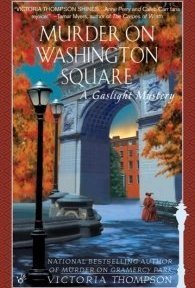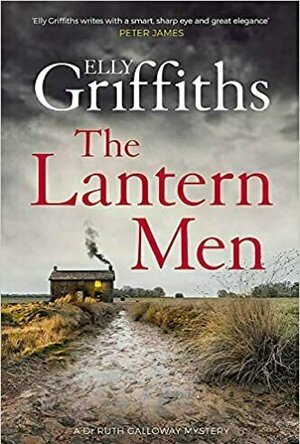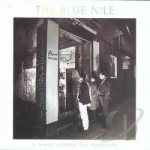Search
Search results
Mark @ Carstairs Considers (2346 KP) rated Murder on Washington Square in Books
Mar 31, 2018
Another Outstanding Trip Back in Time
When midwife Sarah Brandt gets a note form Nelson Ellsworth, her neighbor’s son, she is intrigued. She agrees to their meeting only to learn that Nelson has gotten a woman pregnant, a woman who doesn’t seem to want to marry him. Nelson asks Sarah to examine the woman, but something about their encounter seems off. Sarah doesn’t give it much thought until the woman is murdered and Nelson is arrested for the crime. With the help of NYC detective Frank Malloy, she begins to investigate. What is happening?
I hadn’t realized how much I’ve come to enjoy this series until I picked up the book. I was immediately lost in the world of 1890’s New York City, and Sarah and Frank are outstanding guides. They lead a cast of strong characters, and I love watching them interact and their slow burn romance. I did figure some things out early, but I was still glued to the page as there were twists and complications I didn’t see coming.
I hadn’t realized how much I’ve come to enjoy this series until I picked up the book. I was immediately lost in the world of 1890’s New York City, and Sarah and Frank are outstanding guides. They lead a cast of strong characters, and I love watching them interact and their slow burn romance. I did figure some things out early, but I was still glued to the page as there were twists and complications I didn’t see coming.
Kristy H (1252 KP) rated The Ghost Fields (Ruth Galloway, #7) in Books
Feb 8, 2018
Archaeologist Ruth Galloway is back again, this time called on by Detective Chief Inspector Nelson to investigate a skeleton found in a World War II plane. Once Ruth realizes the dead man sitting in the plane couldn't actually have been the pilot (oh and he's been shot, too), things unfold quickly from there. Ruth and Nelson become ensnared with the upper class Blackstock family, who somehow become enmeshed in all aspects of Nelson's case and investigation. Further, a TV company decides to make a film about the case. This means a return of actor Frank Barker, who was looking to start a relationship with Ruth in the previous novel.
As I've said before, I absolutely love the Ruth Galloway series. I completely identify with Ruth, and I love the way Griffiths writes her - she's a smart, funny, modern woman and mother. This book in the series (#7!) doesn't disappoint. The mystery plot is snappy and intriguing, as we meet various Blackstocks and uncover their diverse motives. In much of the book, the weather is its own sub-plot, and it's done well. We get more character development/advancement with Ruth, Nelson, Nelson's wife Michelle, and Frank, along with the funny tidbits I've come to expect from Ruth (and Kate, who is growing up!). The entire book is cozy and familiar (I love how Ruth identifies with her car, for instance - so me!), yet propelled by a completely enjoyable and thrilling mystery. Can't go wrong with this one. I'm so looking forward to #8.
As I've said before, I absolutely love the Ruth Galloway series. I completely identify with Ruth, and I love the way Griffiths writes her - she's a smart, funny, modern woman and mother. This book in the series (#7!) doesn't disappoint. The mystery plot is snappy and intriguing, as we meet various Blackstocks and uncover their diverse motives. In much of the book, the weather is its own sub-plot, and it's done well. We get more character development/advancement with Ruth, Nelson, Nelson's wife Michelle, and Frank, along with the funny tidbits I've come to expect from Ruth (and Kate, who is growing up!). The entire book is cozy and familiar (I love how Ruth identifies with her car, for instance - so me!), yet propelled by a completely enjoyable and thrilling mystery. Can't go wrong with this one. I'm so looking forward to #8.
Kristy H (1252 KP) rated The Lantern Men in Books
Aug 6, 2020
I adore all Ruth Galloway books, and I'm so glad the series continues. I was surprised to find the book opening with Ruth away from her beloved Norfolk and its marshes--and giving more permanence to her relationship with Frank. The move only complicates Ruth's own relationship with Nelson, and their chemistry crackles as always. I love how familiar the characters feel--Ruth, Nelson, and young Kate. Ruth's friends, to include Cathbad, the eclectic druid, and his family. Nelson's co-workers. Ruth's co-workers. Each of these books feels like coming home and Griffiths captures each of their individual voices so perfectly. I love Nelson's sarcasm and Ruth's intelligence and desire for solitude--they are all so wonderful.
The case in this book is excellent; Griffiths is an expert at tying together murders in the past with those in the present, and that happens here. It kept me guessing, and it's great that's it's so often Ruth's intelligence--not just Nelson's brawn--that helps resolve things. There are some strong twists that keep things moving as well.
This book will stand-alone, though I always recommend the whole series, because Ruth and Nelson's relationship and character development alone is worth it. 4 stars for this installment, and I'll look forward to #13!
The case in this book is excellent; Griffiths is an expert at tying together murders in the past with those in the present, and that happens here. It kept me guessing, and it's great that's it's so often Ruth's intelligence--not just Nelson's brawn--that helps resolve things. There are some strong twists that keep things moving as well.
This book will stand-alone, though I always recommend the whole series, because Ruth and Nelson's relationship and character development alone is worth it. 4 stars for this installment, and I'll look forward to #13!
Kristy H (1252 KP) rated The Outcast Dead (Ruth Galloway, #6) in Books
Feb 8, 2018
Ruth Galloway is busy on yet another dig - this time digging up bones of what may be the famous murderess "Mother Hook," known for caring for children and then perhaps killing them. (And oh yes, for the hook she had on her hand.) Meanwhile, Nelson is busy on a case of a woman who has lost her third child, a young baby, to what looks like SIDS, or is it? And in the shadows, lurks someone who is taking children from their parents - a sinister force calling themselves "The Childminder."
If it sounds like there's a lot going on, there is. And yet, the plot in this one is a little thinner than in a typical Ruth Galloway book, hence the 3 (3.5) star rating. Still, it's pretty much impossible not to enjoy a Ruth Galloway novel. She's a dear friend by now - I love her slightly sarcastic personality and way of presenting her life. There are always moments when I laugh out loud. In this novel, we find Ruth asked to appear on a TV program about murder and archaeology (they are doing a show on "Mother Hook"), which certainly takes Ruth out of her comfort zone, and also introduces us to some new characters, including the American actor, Frank, who seems keen on Ruth.
Some of the zig zagging cases are a little crazy, and "The Childminder" line ties itself up very quickly and neatly by the end, but it's still an interesting read from a mystery perspective. The introduction of Frank adds some tension to Ruth and Nelson's drama, as well. Further, the book has some good insights on childcare in the modern day - working motherhood and the like. I find myself identifying with Ruth in a multitude of ways, and she just remains a likable character who can carry a book, no matter the plot. To date, any Ruth Galloway book is worth a read.
If it sounds like there's a lot going on, there is. And yet, the plot in this one is a little thinner than in a typical Ruth Galloway book, hence the 3 (3.5) star rating. Still, it's pretty much impossible not to enjoy a Ruth Galloway novel. She's a dear friend by now - I love her slightly sarcastic personality and way of presenting her life. There are always moments when I laugh out loud. In this novel, we find Ruth asked to appear on a TV program about murder and archaeology (they are doing a show on "Mother Hook"), which certainly takes Ruth out of her comfort zone, and also introduces us to some new characters, including the American actor, Frank, who seems keen on Ruth.
Some of the zig zagging cases are a little crazy, and "The Childminder" line ties itself up very quickly and neatly by the end, but it's still an interesting read from a mystery perspective. The introduction of Frank adds some tension to Ruth and Nelson's drama, as well. Further, the book has some good insights on childcare in the modern day - working motherhood and the like. I find myself identifying with Ruth in a multitude of ways, and she just remains a likable character who can carry a book, no matter the plot. To date, any Ruth Galloway book is worth a read.



